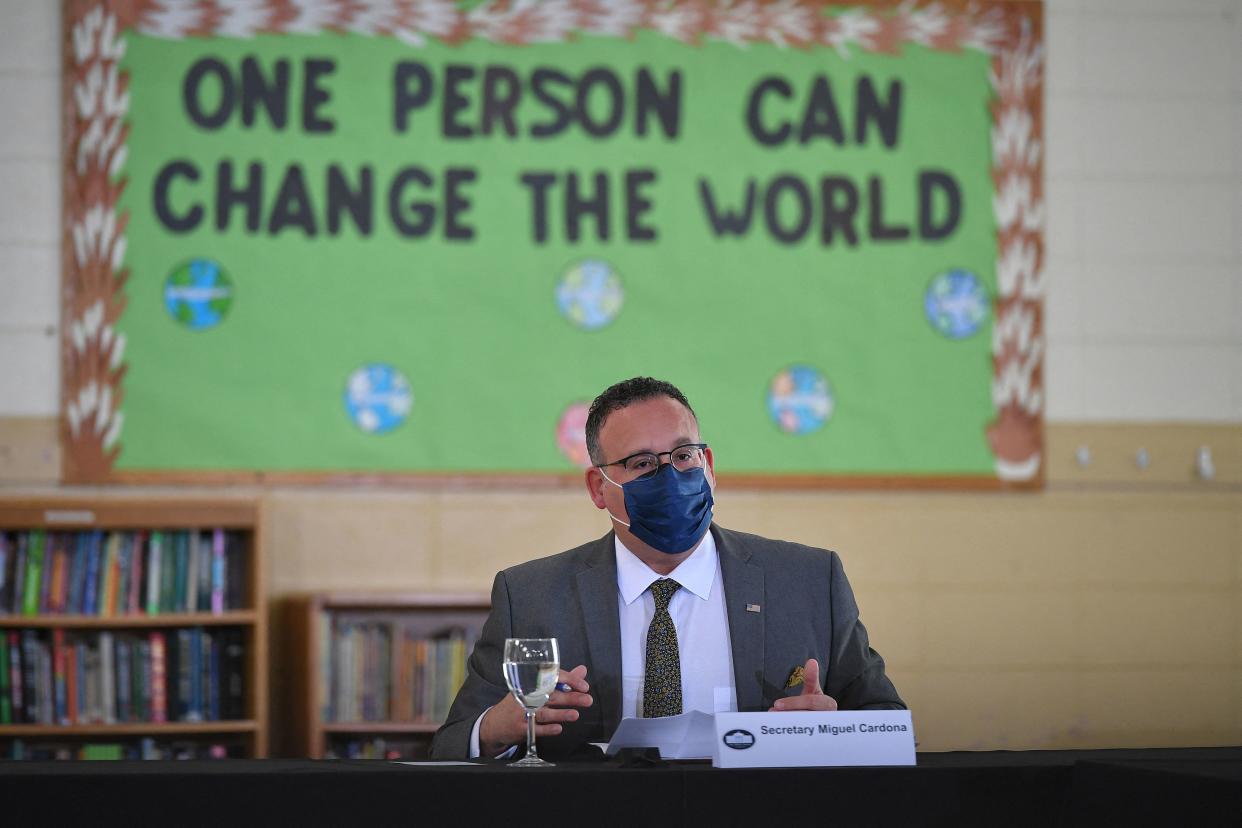'You pay now or you'll pay later:' Ed Sec Miguel Cardona on school inequity
The COVID-19 pandemic has exacerbated inequities that have existed for years within the U.S. education system.
U.S. Secretary of Education Miguel Cardona joined Yahoo Finance to discuss how to address inequities among students and the current state of American education, teacher recruitment, and education funding.
“What we’re seeing now is the access to in-person learning is not even. Black, Brown and Asian students are less likely to be experiencing in-person learning where we know learning happens best,” Cardona said.
Cardona says President Biden's focus on education will go a long way in boosting morale within and throughout the U.S. education system. Biden's FY 2022 budget proposal calls for a significant increase in education spending and includes $36.5 billion in formula grants for Title I schools. In addition, the president’s infrastructure proposal also calls for education-related expenditures such as $100 billion to upgrade and modernize U.S. public school buildings.
The Department of Education plans to launch a virtual equity summit series on June 22 to help address these issues. The first installment will focus on how students in underserved communities can access a high-quality education that meets their needs.
“We have to make sure we’re engaging those families that were difficult to engage for us during this past year. We have to build confidence that our schools are going to be meeting all students with their academic needs … and making sure that our staff feels supported and have the tools at their fingertips so that they can do their jobs,” said Cardona.

Navigating the uncharted waters of a global pandemic has also taken its toll on U.S. teachers’ morale, Cardona said, noting that many career teachers struggle financially.
“It shouldn’t take a pandemic for us to realize how amazing our educators are across the country. We have to make sure that they have a seat at the table to talk about what re-imagining education looks like,” he said.
“In 30 out of 50 states across the country, a mid-career teacher with a family of four qualifies for federal assistance — that’s unacceptable. And we have to make sure we’re supporting our teachers in the classroom by providing them support, professional learning opportunities, pathways for job advancement or different options for different career choices. But we also have to make sure we’re paying them a salary where they can take care of their families, where they don’t have to work jobs on the weekends to make ends meet. They deserve this and we need to give it to them.”
The Department of Education’s Office for Civil rights released a report that shows that achievement between students of color and white students costs the U.S. economy hundreds of billions a year.
“You pay now or you’ll pay later … It costs more to intervene when the damage was done or when the gaps were created or widened. And I’ll tell you right now, this pandemic exacerbated gaps," Cardona said. "The American Rescue Plan, the American Families Plan and American Jobs Plan are intended to stop the bleeding, address inequities, and provide programming so that we can close those gaps once and for all.”
Reggie Wade is a writer for Yahoo Finance. Follow him on Twitter at @ReggieWade.
Read more:
New survey finds that majority of parents support school re-openings this fall
State-by-state data show gaps in teacher salaries, student spending: NEA
Cardona: ‘Lot of work’ left to reopen schools, fix COVID-19’s damage to students
NFL players team up with Goalsetter to teach kids financial literacy
‘The world will never be the same:’ Coursera CEO on learning post pandemic
President Biden announces $81 billion in immediate funding to states for school reopening
The Rockefeller Foundation teams up with testing companies to aid school reopenings
